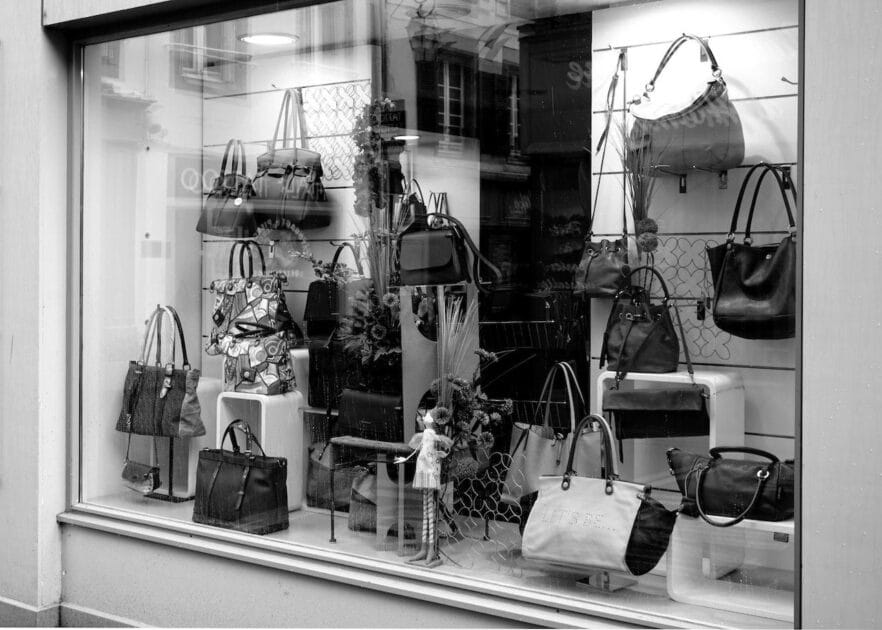Have you ever heard that throwing away a purse brings bad luck? This superstition has been around for centuries and is still believed by many today. While there is no scientific evidence to back up this claim, there is a large portion of the population that believes discarding your purse will lead to negative consequences.
The concept of luck is a fascinating and complex one. It is defined as a force that brings either good or bad events into our lives, seemingly at random. Luck is often associated with superstitions, which are beliefs or practices that are not based on scientific evidence but are still widely held. Superstitions can be found in almost every culture and are often related to everyday objects, like purses.
Purses have a symbolic significance in many cultures. They are not just functional accessories but are also seen as a representation of one’s wealth and status. In some cultures, it is considered disrespectful to throw away a purse because it shows a lack of appreciation for the value of the object. In others, it is believed that throwing away a purse will bring bad luck because it is associated with losing one’s wealth.
Key Takeaways
- The concept of luck is complex and often associated with superstitions.
- Purses have a symbolic significance in many cultures and are associated with one’s wealth and status.
- Throwing away a purse is considered bad luck in some cultures because it is associated with losing one’s wealth.
Understanding the Concept of Luck

Luck is a concept that has been discussed and debated for centuries. It is often associated with chance or fortune, and can be either good or bad. Good luck is typically associated with positive outcomes, while bad luck is associated with negative outcomes.
Superstitions are often tied to the concept of luck. These are beliefs or practices that are based on the idea that certain actions or objects can bring good or bad luck. For example, in some cultures, it is considered bad luck to walk under a ladder or to break a mirror.
The concept of luck can vary greatly between cultures. In some cultures, luck is believed to be related to fate or destiny, while in others it is believed to be related to hard work or effort.
Despite the many different beliefs about luck, it is important to remember that luck is ultimately out of our control. While we can take actions to increase our chances of success, we cannot guarantee that we will always have good luck.
In many cultures, it is believed that certain objects can hold luck or energy from their previous owner. This is why some people may believe that it is bad luck to throw away a purse. The idea is that the purse may still hold the energy or luck of its previous owner, and by throwing it away, you may be throwing away any good luck that it may have brought you.
Overall, the concept of luck is a complex and multifaceted one. It can be influenced by culture, beliefs, and personal experiences. While we may never fully understand the concept of luck, it is important to approach it with an open mind and to remember that luck is ultimately out of our control.
Purses and Luck: A Cultural Perspective
Purses have been an essential accessory for women for centuries, but did you know that they are also steeped in cultural superstitions and beliefs? From China to Japan, different cultures have various beliefs about the role of purses in bringing good or bad luck.
In ancient Chinese art, purses were often depicted as symbols of wealth and prosperity. They were also believed to bring good luck and fortune to those who carried them. In Chinese culture, it is believed that a woman’s purse should never be empty as it represents a lack of abundance in her life.
In Japan, purses are seen as a symbol of good fortune and are often given as gifts during special occasions. It is believed that carrying a red purse can bring good luck and prosperity.
However, in some cultures, throwing away a purse is considered bad luck. According to Bag Vanity, if a woman throws away her purse, she will lose her identity. This is because a purse typically contains a woman’s most important belongings, including her ID, money, and credit cards.
In Chinese culture, it is believed that throwing away a purse with money in it is a sign of disrespect to the gods of wealth. Instead, they suggest that you should donate the purse and its contents to charity or give it to someone in need.
Coins are also an important part of purse superstitions. In Chinese culture, it is believed that carrying coins with a square hole in them can bring good luck and prosperity. These coins are known as “yuan bao” and are often used in feng shui practices.
In conclusion, the role of purses in cultural superstitions and beliefs is fascinating. From ancient Chinese art to modern-day gift-giving traditions in Japan, purses are seen as symbols of wealth, prosperity, and good fortune. However, throwing away a purse can be seen as bad luck in some cultures, so it’s important to be aware of these beliefs and traditions.
Symbolic Significance of Objects
Objects can hold symbolic significance in various cultures and traditions. In some cultures, certain objects are believed to bring good luck, while others may bring bad luck. For instance, in some cultures, it is believed that throwing away a purse may bring bad luck.
Purses are often associated with money and wealth. In some cultures, it is believed that throwing away a purse may symbolize losing wealth or financial stability. To avoid this, some people may choose to donate or give away their purse instead of throwing it away.
Coins are also often associated with wealth and prosperity. In some cultures, it is believed that throwing away a coin may bring bad luck and financial loss. To avoid this, some people may choose to keep their coins in a separate container or donate them to charity.
« Why Is My Purse Peeling? Tips to Prevent and Fix It
Can Purses Mold? Tips to Keep Your Purse Clean and Mold-Free »
The color red is often associated with good luck and prosperity. In some cultures, carrying a red purse or wearing red shoes may bring good luck and financial success.
Cats are often associated with luck and fortune. In some cultures, it is believed that owning a cat may bring good luck and prosperity.
Doors are often associated with new opportunities and beginnings. In some cultures, it is believed that leaving a door open may bring good luck and new opportunities.
Mirrors are often associated with reflection and self-awareness. In some cultures, it is believed that breaking a mirror may bring bad luck and misfortune.
Trees are often associated with growth and stability. In some cultures, it is believed that planting a tree may bring good luck and prosperity.
Umbrellas are often associated with protection and shelter. In some cultures, it is believed that opening an umbrella indoors may bring bad luck.
Owls are often associated with wisdom and knowledge. In some cultures, it is believed that seeing an owl may bring good luck and positive change.
Knives are often associated with cutting ties and endings. In some cultures, it is believed that giving a knife as a gift may bring bad luck and symbolize the ending of a relationship.
Wallets are often associated with money and financial stability. In some cultures, it is believed that giving a wallet as a gift may bring good luck and financial success.
Artwork is often associated with creativity and inspiration. In some cultures, it is believed that displaying artwork in your home or workplace may bring good luck and positive energy.
Scissors are often associated with cutting ties and endings. In some cultures, it is believed that giving scissors as a gift may bring bad luck and symbolize the ending of a relationship.
Soap is often associated with cleanliness and purity. In some cultures, it is believed that giving soap as a gift may bring good luck and positive energy.
Opals are often associated with creativity and inspiration. In some cultures, it is believed that wearing opals may bring good luck and positive energy.
Balance is often associated with harmony and stability. In some cultures, it is believed that keeping a balanced life may bring good luck and prosperity.
The Feng Shui Connection
Feng shui is an ancient Chinese practice that involves arranging objects in a space to create a harmonious environment. It is believed that feng shui can affect one’s health, wealth, and happiness. According to feng shui principles, everything in your home has energy, and clutter can block the flow of positive energy.
When it comes to decluttering, it’s important to keep the front door in mind. In feng shui, the front door is considered the “mouth of chi,” or the entry point for energy to enter your home. If you have clutter blocking your front door, it can affect the flow of energy and potentially bring inauspicious energy.
Now, let’s talk about purses. While there isn’t necessarily a specific feng shui rule about throwing away a purse, it’s important to consider the energy that the purse holds. If the purse is cluttered with old receipts, trash, or other unnecessary items, it can block the flow of positive energy.
In feng shui, balance is key. If you have too many purses cluttering up your space, it can create an imbalance and potentially bring inauspicious energy. On the other hand, if you have a well-organized purse collection that brings you joy, it can be considered auspicious.
Overall, it’s important to keep your space clutter-free and balanced. While there may not be a direct feng shui connection to throwing away a purse, it’s important to consider the energy that the purse holds and whether it is contributing to a harmonious environment.
Superstitions Around the World
https://www.youtube.com/watch?v=6ZtPU7ueIh4&embed=true
Superstitions are beliefs or practices that are not based on reason or scientific knowledge. They are often rooted in culture and tradition and are passed down from generation to generation. Superstitions can be related to luck, good or bad, and can vary greatly from one culture to another.
In Japan, for example, the number four is considered unlucky because it sounds similar to the word for death. In China, the number eight is considered lucky because it sounds similar to the word for wealth. In Spain, it is believed that if you touch a toad, you will get warts.
Friday the 13th is considered unlucky in many cultures around the world. This superstition is believed to have originated from the Last Supper, where there were 13 people at the table, including Judas, who betrayed Jesus. In some cultures, it is also believed that if you break a mirror, you will have seven years of bad luck.
In Feng Shui, the ancient Chinese practice of arranging objects to create harmony and balance, it is believed that the way you arrange your home or office can affect your luck and well-being. The flow of chi, or energy, is important in Feng Shui, and it is believed that clutter and disorganization can block the flow of chi and bring bad luck.
Different cultures have different beliefs about the good and bad luck associated with certain objects or actions. For example, in some cultures, it is believed that spilling salt brings bad luck, while in others, it is believed that throwing salt over your shoulder can ward off evil spirits.
In conclusion, superstitions are an interesting and often colorful aspect of culture and tradition around the world. While some may seem silly or irrational, they can play an important role in shaping beliefs and practices in different societies.
Impact of Superstitions on Relationships
Superstitions can have a significant impact on relationships. If you believe in superstitions, you may feel that certain actions or items can bring bad luck to your relationship. For example, throwing away a purse may be considered bad luck in some cultures. If your partner believes in this superstition and you throw away a purse, it may cause tension in your relationship.
Superstitions can also affect the way you interact with your partner. For example, if you believe that walking under a ladder is bad luck, you may avoid doing so even if it means taking a longer route to meet your partner. This can cause frustration and inconvenience for both you and your partner.
If you have children, superstitions can also affect the way you raise them. For example, if you believe that giving a knife as a gift is bad luck, you may avoid doing so even if it is a practical gift for your child. This can limit your child’s exposure to certain experiences and items.
It’s important to communicate with your partner about your beliefs and superstitions. If you both have different beliefs, it’s important to respect each other’s beliefs and find a compromise. For example, if your partner believes that throwing away a purse is bad luck, you can find a way to donate or repurpose the purse instead of throwing it away.
In conclusion, superstitions can have a significant impact on relationships, but it’s important to communicate and respect each other’s beliefs. By doing so, you can avoid unnecessary tension and frustration in your relationship.
The Role of Animals in Superstitions
https://www.youtube.com/watch?v=tG2G_nL0IKc&embed=true
Animals have long been intertwined with human culture, and their presence has consistently been surrounded by an aura of mystery and intrigue. From ancient civilizations to modern societies, animals have played a significant role in shaping our beliefs, folklore, and cultural practices.
Cats, for instance, are often associated with good luck in many cultures. In ancient Egypt, cats were revered and even worshipped as sacred animals. Owls, on the other hand, are often seen as harbingers of death and misfortune. In some cultures, it is believed that the hooting of an owl is a sign of impending doom.
Black cats are also a common superstition. In some cultures, they are seen as symbols of bad luck and are associated with witches and other nefarious beings. However, in other cultures, black cats are considered to be good luck, and owning one is said to bring prosperity and good fortune.
Bird poop is yet another animal-related superstition. In some cultures, it is believed that getting pooped on by a bird is a sign of good luck. However, in other cultures, it is seen as a sign of bad luck.
Overall, the role of animals in superstitions is vast and varied. While some animals are seen as symbols of good luck, others are associated with bad luck and misfortune. It is essential to keep in mind that superstitions are often based on cultural beliefs and are not necessarily grounded in fact.
Addressing Common Superstitions
As you know, there are many superstitions surrounding different objects and situations that we encounter in our daily lives. Some of these superstitions are harmless, while others can cause unnecessary stress and anxiety. Let’s take a closer look at some of the most common superstitions related to purses and wallets.
Purse on the Floor
Have you ever heard that putting your purse on the floor is bad luck? Some people believe that doing so will cause you to lose money or attract negative energy. While there is no scientific evidence to support this claim, it is a common belief in many cultures. If you are concerned about this superstition, try to find a clean and dry surface to place your purse on.
Itchy Palms
Another superstition related to money is the belief that having itchy palms means that you will receive money soon. While this may be a fun thought, there is no evidence to support this claim. Itchy palms can be caused by a variety of factors, including dry skin or allergies. If you are experiencing itchy palms, try moisturizing your skin or speaking with a healthcare professional.
Money Spiders
Some people believe that seeing a spider on or near their purse or wallet is a sign of good luck and that they will receive money soon. While spiders can be beneficial to the environment, there is no evidence to support this superstition. If you are afraid of spiders, try to remain calm and remove them from your living space safely.
Find a Penny
Have you ever heard the saying “find a penny, pick it up, and all day long you’ll have good luck”? While finding a penny on the ground may bring you joy, there is no evidence to support the idea that it will bring you good luck. If you do find a penny, consider donating it to a charity or using it to make a wish.
Broken Mirror
Breaking a mirror is often associated with bad luck and can cause anxiety for some people. While this superstition is common, there is no evidence to support the idea that breaking a mirror will bring you seven years of bad luck. If you do break a mirror, try to clean up the broken glass carefully and dispose of it properly.
Ladders
Finally, some people believe that walking under a ladder is bad luck. While this superstition is common, it is more related to safety concerns than luck. Walking under a ladder can be dangerous and can cause injury. If you see a ladder, try to walk around it safely.
Overall, while these superstitions may be fun to think about, there is no evidence to support most of them. If you are concerned about a particular superstition, try to stay calm and focus on positive thoughts and actions.
Rituals and Remedies for Bad Luck
If you’re feeling like you’ve been experiencing a string of bad luck, there are many rituals and remedies you can try to help turn things around. Here are a few options:
1. Sage Smudging
Sage smudging is a popular ritual for cleansing negative energy and promoting positive energy. You can use a sage smudging kit or purchase sage bundles to burn. Light the sage and let the smoke fill the room, focusing on areas where negative energy may be lingering.
2. Holy Trinity Ritual
The Holy Trinity ritual involves using salt, water, and incense to cleanse your home and protect against negative energy. Sprinkle salt around the perimeter of your home, then sprinkle water in each room. Finally, light incense and carry it throughout the house, focusing on areas where negative energy may be lingering.
3. Citrine Crystal
Citrine is believed to promote success and prosperity. You can carry a citrine crystal with you or place it in your home or office to promote positive energy.
4. Good Luck Charms
There are many good luck charms you can carry with you or place in your home to promote good fortune. Some popular options include horseshoes, four-leaf clovers, and evil eye charms.
5. Warding Off the Evil Eye
The evil eye is believed to bring bad luck and misfortune. To ward off the evil eye, some people wear a talisman or amulet, such as a hamsa hand or a nazar boncuk.
Overall, there are many rituals and remedies you can try to ward off bad luck and promote good fortune. Whether you choose to use sage smudging, holy trinity rituals, citrine crystals, good luck charms, or other methods, the important thing is to stay positive and believe in your ability to turn things around.
Superstitions and Mental Health
Superstitions are long-held beliefs that appear to be rooted in coincidence or cultural tradition rather than logic. While some people may find comfort in following certain superstitions, others may experience anxiety and fear when they don’t follow them.
Research suggests that superstitions may have an impact on mental health. For example, a study published in the Journal of Anxiety Disorders found that people with obsessive-compulsive disorder (OCD) were more likely to report engaging in superstitious behaviors than people without OCD. This suggests that superstitions may be a coping mechanism for some people with anxiety.
On the other hand, some superstitions may have a positive impact on mental health. For example, a study published in the Journal of Positive Psychology found that people who engaged in superstitious behaviors experienced greater feelings of control and happiness than people who did not engage in such behaviors.
It’s important to note that while some superstitions may have a positive impact on mental health, others may have a negative impact. For example, if a superstition causes you to feel anxious or fearful, it may be worth examining why you hold that belief and whether it’s serving you well.
In the case of throwing away a purse, there is no evidence to suggest that it is bad luck. While some people may hold this belief, it is likely rooted in superstition rather than logic. If you find that holding onto a purse causes you anxiety or distress, it may be worth examining why you feel that way and whether it’s serving you well.
Conclusion
In conclusion, the belief that throwing away a purse is bad luck is a superstition that has been around for centuries. While there is no scientific evidence to support this claim, many people still believe in it today.
Different cultures have their own superstitions surrounding purses and money. For example, in Italy, it is believed that giving a purse or wallet as a gift without including some money in it will bring bad luck to the recipient.
Overall, whether or not you believe in superstitions surrounding purses and money is up to you. While some may choose to follow these beliefs, others may not put much stock in them. It is important to remember that luck and wealth are not solely determined by superstitions, but rather by hard work and determination.
Frequently Asked Questions
Is it bad luck to throw away an old purse?
There is no universal belief that throwing away an old purse brings bad luck. However, some people believe that getting rid of an old purse that has sentimental value or was a gift from someone special may bring bad luck. If you feel that way, consider donating the purse to a charity or giving it to someone who will appreciate it.
Is it considered bad luck to give someone a used purse?
In some cultures, giving someone a used purse is considered bad luck because it is believed to transfer negative energy from the previous owner to the recipient. However, in other cultures, it is perfectly acceptable to give someone a used purse, especially if it is in good condition and has sentimental value.
What are some superstitions related to purses?
There are many superstitions related to purses. For example, some people believe that putting a coin in a new purse will bring good luck and wealth. Others believe that putting a mirror in a purse will reflect negative energy away from the carrier. Some people believe that a purse on the floor means money will be lost, while others believe that placing a purse on a table will bring good luck.
What are some signs of wealth according to superstition?
According to superstition, carrying a purse made of expensive materials such as leather or silk is a sign of wealth. Additionally, some people believe that carrying a purse with a lot of money in it or carrying a designer purse is a sign of wealth.
What should I do with my old handbags?
If you have old handbags that you no longer use, consider donating them to a charity or selling them online. You can also repurpose them by using them as storage for items around your house or giving them to friends or family members who may appreciate them.
Is it bad luck to drop your purse?
Some people believe that dropping a purse is bad luck because it symbolizes losing money or losing control of your finances. However, dropping a purse is a common accident that can happen to anyone, and it is not necessarily a sign of bad luck.



















